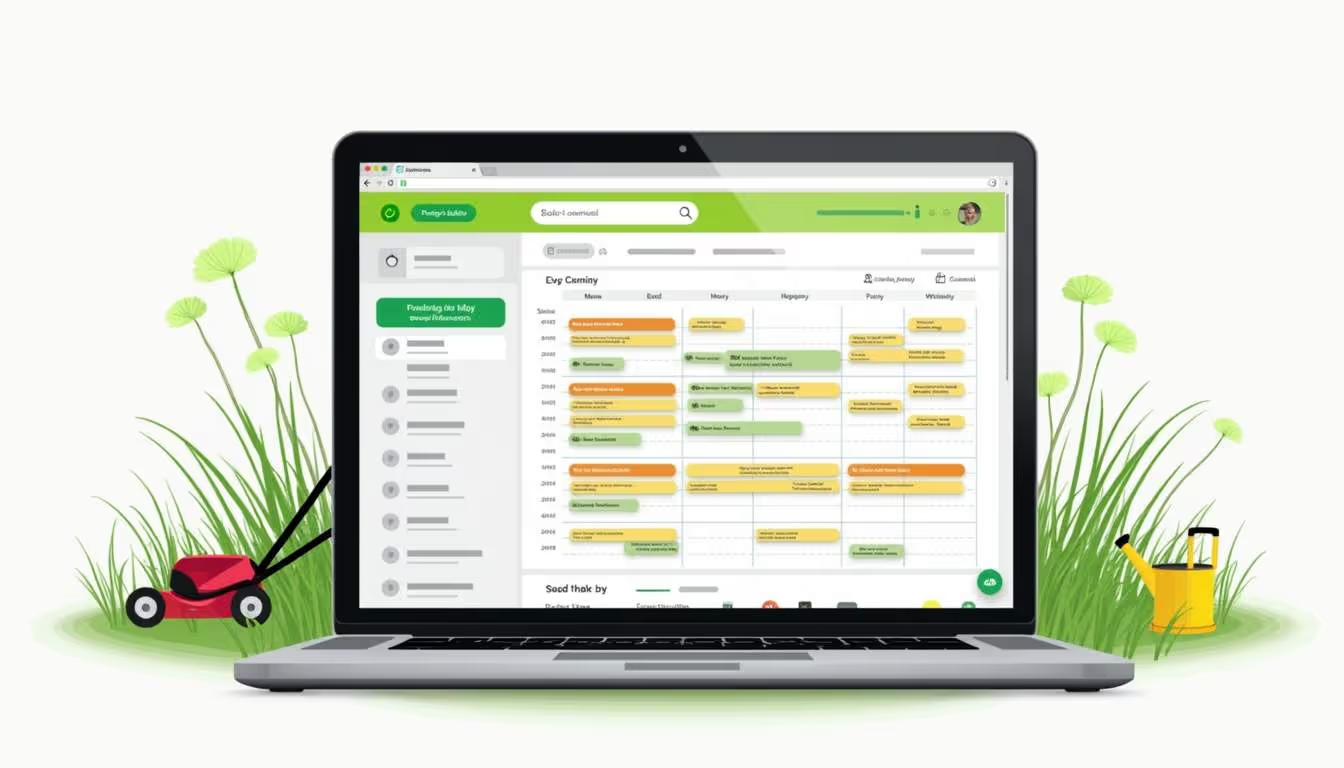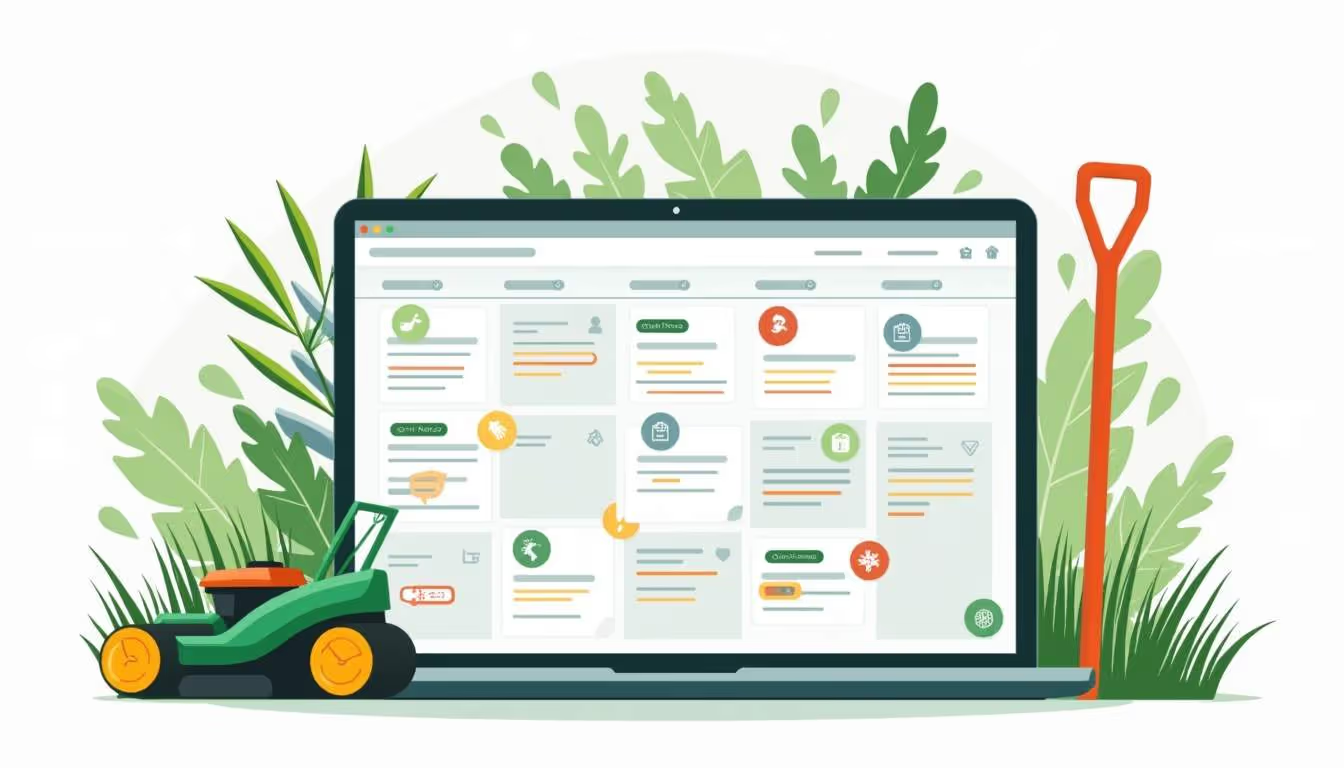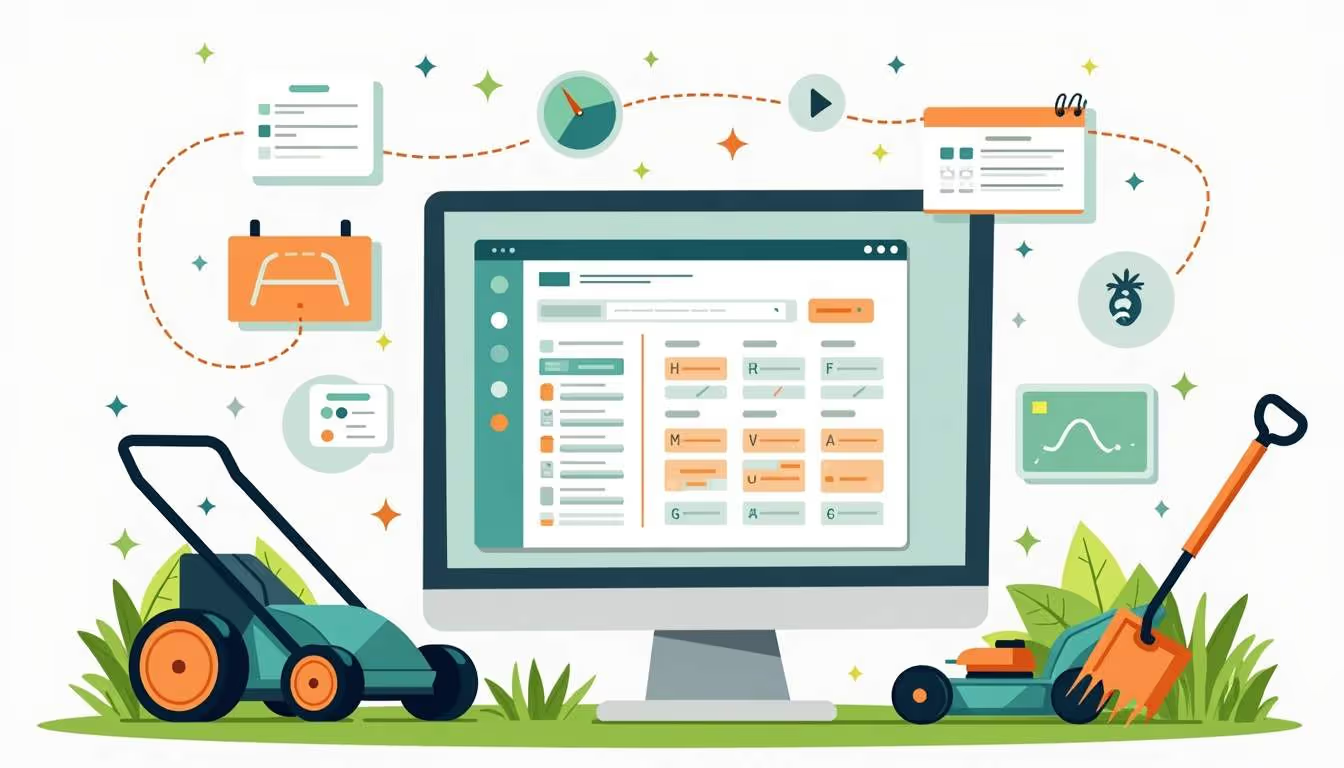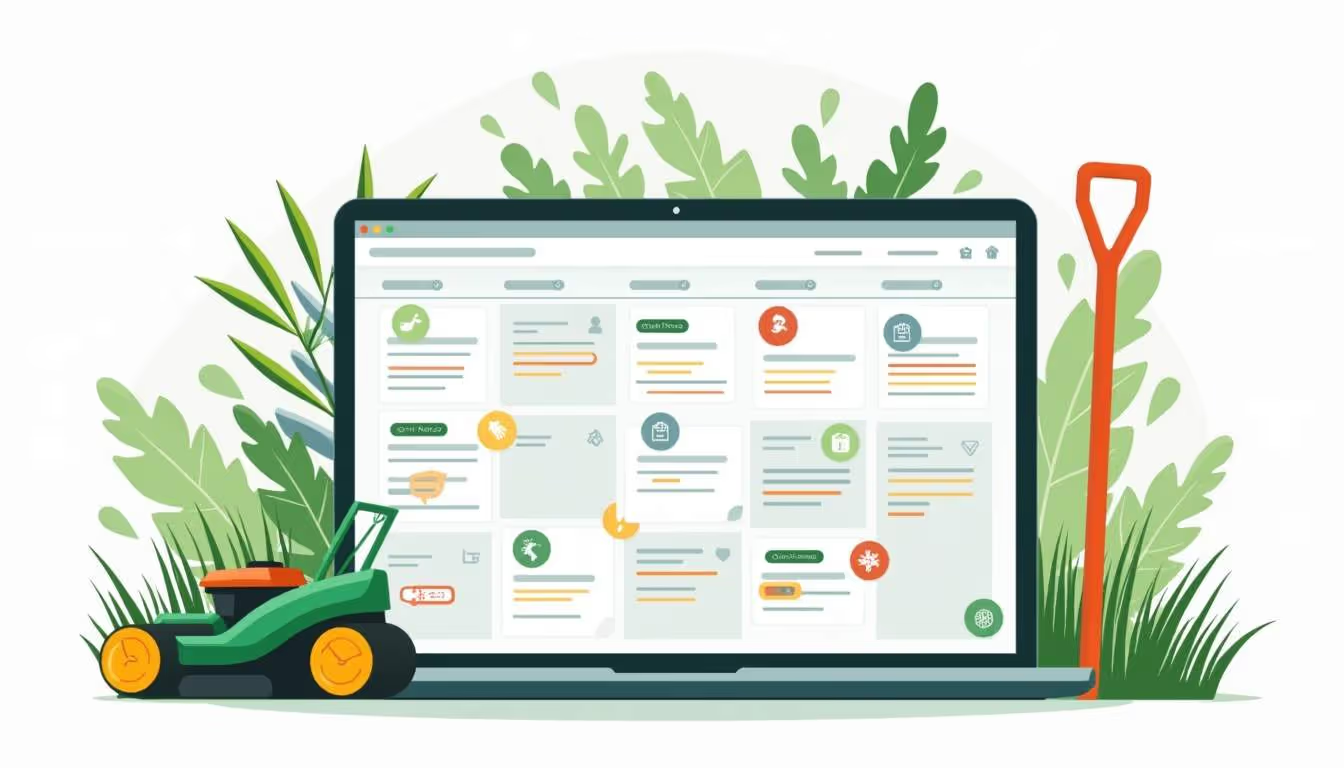Top Lawn Care Scheduling Software: Streamline Your Business Today
In today’s competitive lawn care industry, efficiency and customer satisfaction are paramount. With over 900,000 people employed in the US lawn care sector and the industry generating an estimated $99 billion annually, businesses must leverage technology to stay ahead. One of the most impactful tools transforming lawn care companies is scheduling software. By optimizing routes, automating billing, and improving communication, lawn care scheduling software is revolutionizing how services are delivered. This article explores the top lawn care scheduling software options and why integrating these platforms is essential for streamlining your business operations.
Why Lawn Care Scheduling Software Matters
Managing a lawn care business involves juggling numerous appointments, routes, and customer preferences. Traditional manual scheduling methods can lead to inefficiencies, missed appointments, and unhappy clients. This is where scheduling software steps in as a game changer.

According to recent data, over 65% of lawn care companies have adopted AI-driven scheduling tools to optimize service routes, demonstrating how technology is becoming a standard in the industry. These tools not only reduce travel time but also lower fuel costs and increase the number of daily jobs a team can complete. Moreover, more than 70% of professional lawn care companies now use online scheduling and billing systems, underscoring the importance of digital solutions in modern lawn care management.
Boosting Operational Efficiency
Scheduling software automates many administrative tasks, such as appointment booking, route planning, and invoicing. Lawn care business owners typically spend around 15 hours per week on administrative duties, so automating these processes can free up valuable time to focus on growing the business or improving service quality.
By streamlining scheduling, companies can reduce client turnover, which currently averages around 30%, and improve customer retention, which stands at an impressive 80%. This balance is critical for sustaining long-term profitability and growth. Furthermore, the data collected through these software solutions can provide valuable insights into customer preferences and seasonal trends, allowing businesses to tailor their services more effectively. For instance, knowing which services are most popular during specific months can help in planning marketing campaigns and promotional offers, ultimately driving more sales.
Enhancing Customer Experience
Convenience is a significant factor driving consumer preferences in lawn care. Subscription-based services, which offer scheduled regular maintenance, saw a 28% increase in usage in 2022. Scheduling software supports these models by allowing customers to easily book, reschedule, or cancel services online, enhancing satisfaction and loyalty.
Additionally, with an average customer satisfaction rate of 85%, lawn care companies that utilize scheduling software are better positioned to maintain and improve this metric by ensuring timely and reliable service delivery. The ability to send automated reminders and confirmations via text or email not only keeps clients informed but also reduces no-shows, which can disrupt a carefully planned schedule. Moreover, many of these software solutions include customer feedback features, enabling companies to gather insights directly from clients about their experiences and areas for improvement. This proactive approach to customer service not only fosters loyalty but also creates a community of satisfied clients who are likely to refer new business.
Key Features to Look for in Lawn Care Scheduling Software
Choosing the right scheduling software can be daunting given the variety of options available. However, some core features are essential for maximizing the benefits of these platforms.

1. Route Optimization
One of the most valuable features is AI-driven route optimization. This technology analyzes job locations and traffic patterns to create the most efficient routes for lawn care crews. With 65% of companies already using AI scheduling tools, this feature is quickly becoming a must-have. By minimizing travel time and fuel costs, businesses can increase their profitability while also reducing their carbon footprint, making it a win-win for both the company and the environment.
2. Online Booking and Customer Portals
Allowing customers to book and manage appointments online increases convenience and reduces administrative workload. Over 70% of lawn care companies have adopted online scheduling and billing systems, reflecting the importance of digital accessibility for clients. Moreover, these customer portals often include features such as service history tracking and reminders for upcoming maintenance, which not only enhance customer satisfaction but also foster a sense of loyalty as clients feel more engaged with their service provider.
3. Automated Billing and Invoicing
Integrating billing with scheduling ensures timely payments and simplifies financial management. This feature helps businesses maintain healthy cash flow and reduces errors associated with manual invoicing. Additionally, automated reminders for overdue payments can significantly decrease the time spent on collections, allowing business owners to focus more on service delivery rather than administrative tasks. This efficiency can also enhance client relationships, as customers appreciate the clarity and professionalism of automated communications.
4. Mobile Accessibility
Field crews benefit from mobile apps that provide real-time updates, job details, and navigation assistance. This connectivity improves communication between office staff and technicians, leading to smoother operations. Furthermore, mobile accessibility allows crews to capture photos and notes on-site, which can be shared instantly with the office. This feature not only aids in quality control but also allows for immediate adjustments to service plans based on the condition of the property, ensuring that clients receive tailored care that meets their specific needs.
5. Customer Relationship Management (CRM) Integration
Scheduling software with built-in CRM capabilities helps businesses track client history, preferences, and feedback. This data supports personalized service and marketing efforts, contributing to higher customer retention. By analyzing customer interactions and preferences, companies can create targeted promotions and loyalty programs that resonate with their clientele. This level of customization not only enhances the customer experience but also drives repeat business, as satisfied customers are more likely to recommend services to friends and family, expanding the company's reach through word-of-mouth marketing.
Top Lawn Care Scheduling Software Platforms
Several software platforms stand out for their comprehensive features and industry focus. In addition to industry-leader ProValet, here are other options lawn care businesses should consider.

Jobber
Jobber is a leading lawn care scheduling software known for its user-friendly interface and robust features. It offers route optimization, online booking, automated invoicing, and mobile apps for field teams. Jobber’s CRM tools help businesses maintain strong customer relationships, contributing to the industry’s high retention rates. Additionally, Jobber provides insightful reporting and analytics, allowing lawn care companies to track their performance metrics effectively. This data-driven approach helps businesses make informed decisions, enhancing their service offerings and operational efficiency.
Service Autopilot
Service Autopilot is designed specifically for lawn care and landscaping companies. It excels in scheduling automation, route planning, and client communication. The platform supports subscription-based services, which have grown by 28% in popularity, making it ideal for businesses looking to capitalize on this trend. Furthermore, Service Autopilot includes features such as lead tracking and marketing automation, enabling companies to streamline their sales processes and nurture leads more effectively. This comprehensive approach not only saves time but also helps businesses grow their customer base through targeted marketing efforts.
Housecall Pro
Housecall Pro offers a comprehensive solution with scheduling, billing, and customer management features. Its mobile app empowers field technicians with real-time job updates and navigation. The software’s ease of use and scalability make it suitable for lawn care companies of all sizes. In addition, Housecall Pro integrates seamlessly with various payment processors, allowing for quick and secure transactions. This flexibility enhances customer satisfaction, as clients can choose their preferred payment methods, while businesses benefit from faster cash flow and reduced administrative burdens.
LawnPro
LawnPro stands out for its focus on lawn care-specific needs, including chemical tracking and service reminders. It integrates scheduling with billing and customer management, helping businesses maintain an 85% customer satisfaction rate by ensuring timely and accurate service delivery. LawnPro also offers customizable reporting features, enabling lawn care businesses to analyze their service performance over time. With the ability to generate detailed reports on customer preferences and service history, companies can tailor their offerings to better meet client needs, fostering loyalty and encouraging repeat business.
How Scheduling Software Drives Growth in Lawn Care
The lawn care industry is projected to grow at a compound annual growth rate (CAGR) of 4.2% from 2020 to 2028, reflecting steady demand for professional services. Scheduling software plays a crucial role in enabling businesses to scale efficiently and meet this growing demand.
Increasing Job Capacity
By optimizing routes and reducing downtime, scheduling software allows crews to complete more jobs each day. This efficiency translates directly into increased revenue without the need for additional staff or equipment investments.
Reducing Costs
Efficient scheduling minimizes fuel consumption and vehicle wear and tear. Automated billing reduces administrative errors and delays, improving cash flow and lowering operational costs.
Improving Customer Retention
With an 80% customer retention rate in the industry, maintaining strong client relationships is vital. Scheduling software’s CRM features and reliable service scheduling help keep customers satisfied and loyal.
Adapting to Consumer Preferences
As 35% of homeowners prefer hiring professionals and 45% perform lawn care themselves, companies must offer flexible scheduling and subscription options to attract and retain diverse customer segments. Software that supports these models helps businesses stay competitive.
Conclusion: Embrace Scheduling Software to Future-Proof Your Lawn Care Business
The lawn care industry is evolving rapidly, driven by technological advancements and changing consumer expectations. Scheduling software has emerged as an indispensable tool for lawn care businesses aiming to streamline operations, enhance customer experience, and drive growth.
With AI-driven route optimization, online booking, automated billing, and mobile accessibility, these platforms enable companies to operate more efficiently and profitably. As the market for lawn care software solutions is expected to reach $7.8 billion by 2026, investing in the right scheduling software today is a strategic move to secure your business’s future success.
Whether you run a small local outfit or a large regional operation, integrating scheduling software tailored to lawn care needs will help you stay competitive, reduce costs, and delight your customers. Explore the top platforms like Jobber, Service Autopilot, Housecall Pro, and LawnPro to find the best fit for your business and start streamlining your lawn care operations today.








